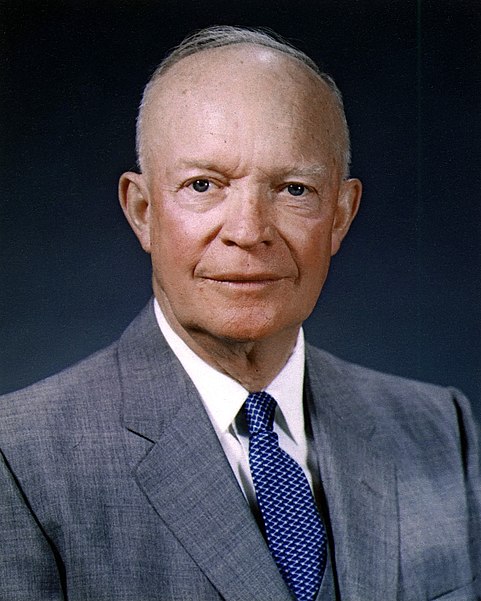The scene will be familiar to Looney Tunes’ fans. In Rabbit Fire, Bugs Bunny and Daffy Duck are in a conundrum. Elmer Fudd, the trigger-happy hunter, is once again on the loose. Bugs and Daffy, like most reasonable animals, do not want to get shot. What to do? In typical Looney Tunes fashion they use their wit. To save himself, Bugs convinces Mr. Fudd that it is Duck Season. Daffy counters that it is Rabbit season. The problem for Daffy is that Bugs has a tad more wit, and a better temper. The two end up engaging in a “Duck season! Rabbit season! Duck season!” exchange before the bemused hunter. Of course it all ends with the comical, and surprisingly harmless, salvo of gun fire that characterises the Looney Tunes.
Why mention a talking rabbit, a duck with obvious anger management issues and a clueless hunter who looks like Dwight Eisenhower? Well, my friends, the reason is simple. It may be rabbit season or duck season in Hollywood, but at LSE there is no debate: it is essay season.

Unfortunately for us we cannot outwit our examiners and shout: “Duck season! Fire!” That would not be fair. So bearing this in mind I offer my humble advice on how to get through this season unscathed. First, the lawyer in me feels I must offer a warning. These are not steadfast rules, these are guidelines. You must find what works best for you. So if you follow my advice and it does not quite work out please do not sue me. My most valuable asset is a pair of Ikea slippers so it would not be worth your while. Bearing these qualifiers in mind, let us begin.
Make Time to Take Time
For those of you who are reading this post as a way to procrastinate this might be a little too late. Yet you illustrate my point well. You choose to read instead of writing. The control of your time is in your hands. Yes: classes, friends and the one off Doctor Who episode get in the way, but you manage most of your day. Do it efficiently. Essay writing takes time.
Plan ahead and put aside a part of your day to research your sources and write. For some people it is morning, for the fastidiously precise it may be from 14:38 to 17:17, for others it is evening. Find the time that is right for you. The more time you have the more likely you are to get a timely bolt of inspiration, instead of the writer’s block that inevitably comes to paralyse you the night before you turn in your paper.
Choose the Setting that is Right for You
It is alleged that the Swiss architect Le Corbusier said that form follows function. He was right. His modernist buildings may plague the earth like concrete cereal boxes, but he was right. If form follows function, then the setting, space and surroundings where you choose to write your essay are important. Choose them carefully.
A bed may be comfortable to write in, all snuggled up with your duvet and your laptop on your knees, but inevitably the subject matter and the comfort of your bedding combine. The result: you fall asleep. Well, most of us fall asleep. If you are like Winston Churchill and can work in bed with ease I applaud you.
For the rest of us mere mortals a desk and a comfortable chair in a quiet area is probably the best setting. If you favour daylight and occasionally like to stare outside for inspiration, find a window. A suitable café could be a nice setting as well. I find changing scenes throughout the essay writing process helpful. It replicates the principles of a pub crawl but replaces the drinks with a laptop and the pub with libraries, coffee shops or parks.
Try to avoid distractions. Keeping this in mind, we are all human. Taking a break every forty five minutes or having the odd ten minute chat with a friend is a good way to distract your mind for a brief period. This pause should better enable you to concentrate afterwards. So long as “Hello, what’s up?” does not turn into “Never mind the hotdogs, let’s go catch a movie before we go to the all night ice skating rink”.
Having a bit of music is always a good motivational tool. Make sure to pick the right track. Michael Jackson’s Workin’ Day and Night or Chopin’s Funeral March might seem appropriate at first, given the subject matter, but they might not inspire the best of essays. The same goes for Mozart’s Requiem. The poor man died composing the piece. I find Queen’s Don’t Stop Me Now to be a good start.
Choose whichever song puts you in the right frame of mind as long as the lyrics do not end up on your essay. You would not want your introduction to read: “In this essay I argue that the economic shortfalls of the Great Depression find their root in a shooting star leaping through the skies like a tiger defying the laws of gravity”.
Also, remember one golden rule. When you are in a shared space please use your earphones to listen to music.
Have a Plan of Attack
Benjamin Franklin, the American political thinker with a knack for being electrocuted while flying kites during thunderstorms, once said: “By failing to prepare, you are preparing to fail.” These are wise words from a man who believed in the benefits of air baths. I am sure Franklin’s neighbours found his habit of sitting in front of an open window in the nude quite eccentric if not alarming.
Your plan of attack need not be Operation Overlord. You are not invading Nazi occupied France. Simply having bullet points for each of your arguments is a great help. You do not have to make it formal. You could even scribble them on the back of a coaster or turn it into a game and give it a code name like Operation Huzzah.

Your argument should flow seamlessly to support your thesis. By having a simple framework you create a road map to follow during the writing process. By reading your introduction, the first sentence of each paragraph and your conclusion, the reader should be able to have a clear idea of your viewpoint.
Write and Cite
This is rather self-explanatory. Ensure your writing is academic, clear and crisp. Short sentences are always better. If you cannot remember the beginning of the sentence when you reach the end you should probably split it into two.
Do not forget to cite. Plagiarism is the worse crime of the academic world. Stealing a tuna sandwich from an old lady or ransoming kittens pales in comparison. Cite every idea which is not yours and when in doubt, cite just to be safe.
Edit
It is very easy, in the euphoria following the completion of a necessary burden such as a paper, to put it away and forget about it. You should avoid this temptation. Read your essay aloud a day after you have finished writing it. You will be able to catch simple mistakes, such as the “l” you forgot when you wrote “public administration”.
Have your friends or family read through it. They will love it, especially the insomniacs among them. They will be able to tell you if they understand your argument and suggest changes.
Essay writing is difficult. Yet it is a necessary difficulty. It enables us to reason and express ourselves clearly. By writing essays we engage with the academic dialogue. If all else fails you can always shout: “Duck season! Fire!”




Excellent tips and very witty.